The other day, I talked about ~うちに that means “while….” ~ないうちに means “while … not…” so it is more like “before … start(s)/do(es) ~.”
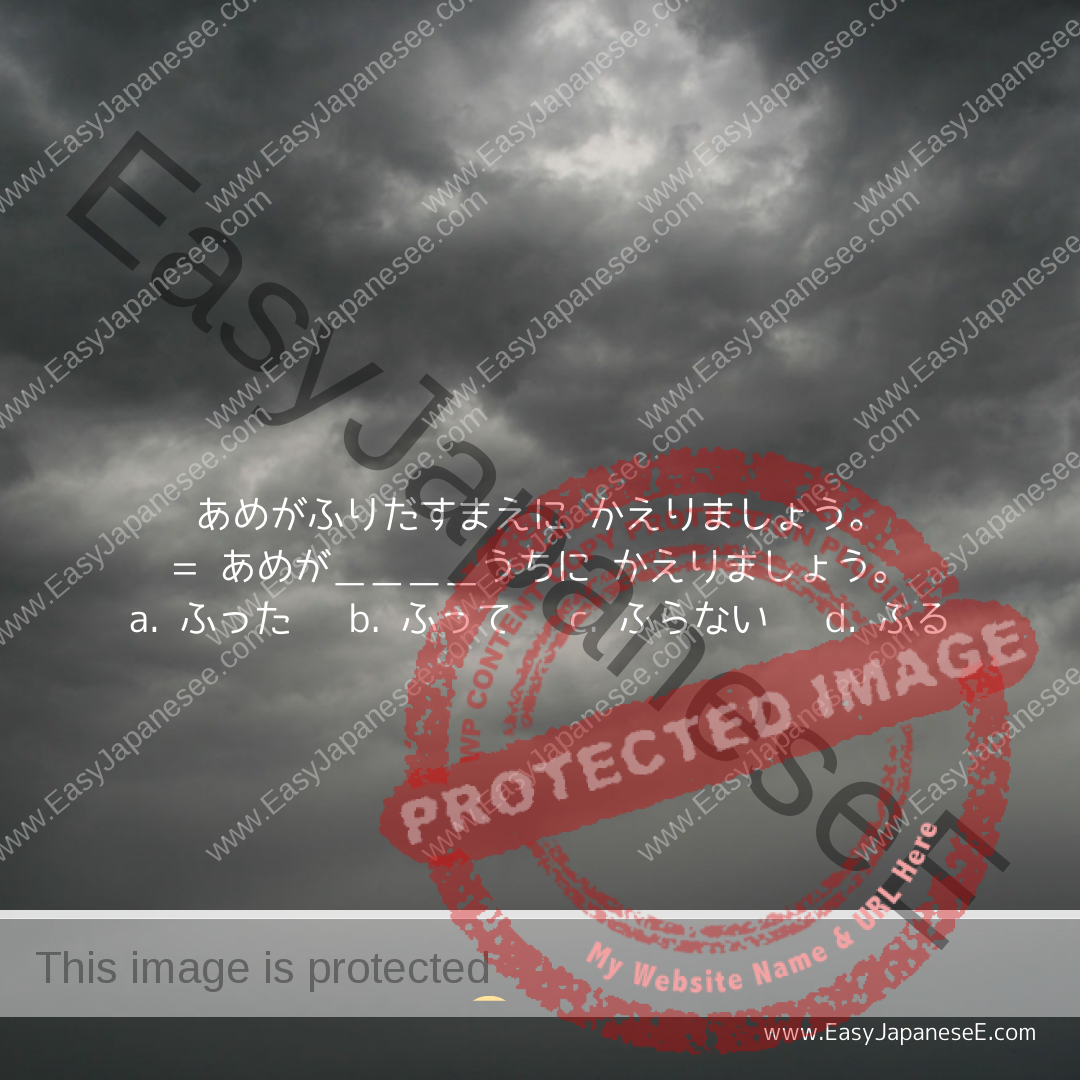

The other day, I talked about ~うちに that means “while….” ~ないうちに means “while … not…” so it is more like “before … start(s)/do(es) ~.”
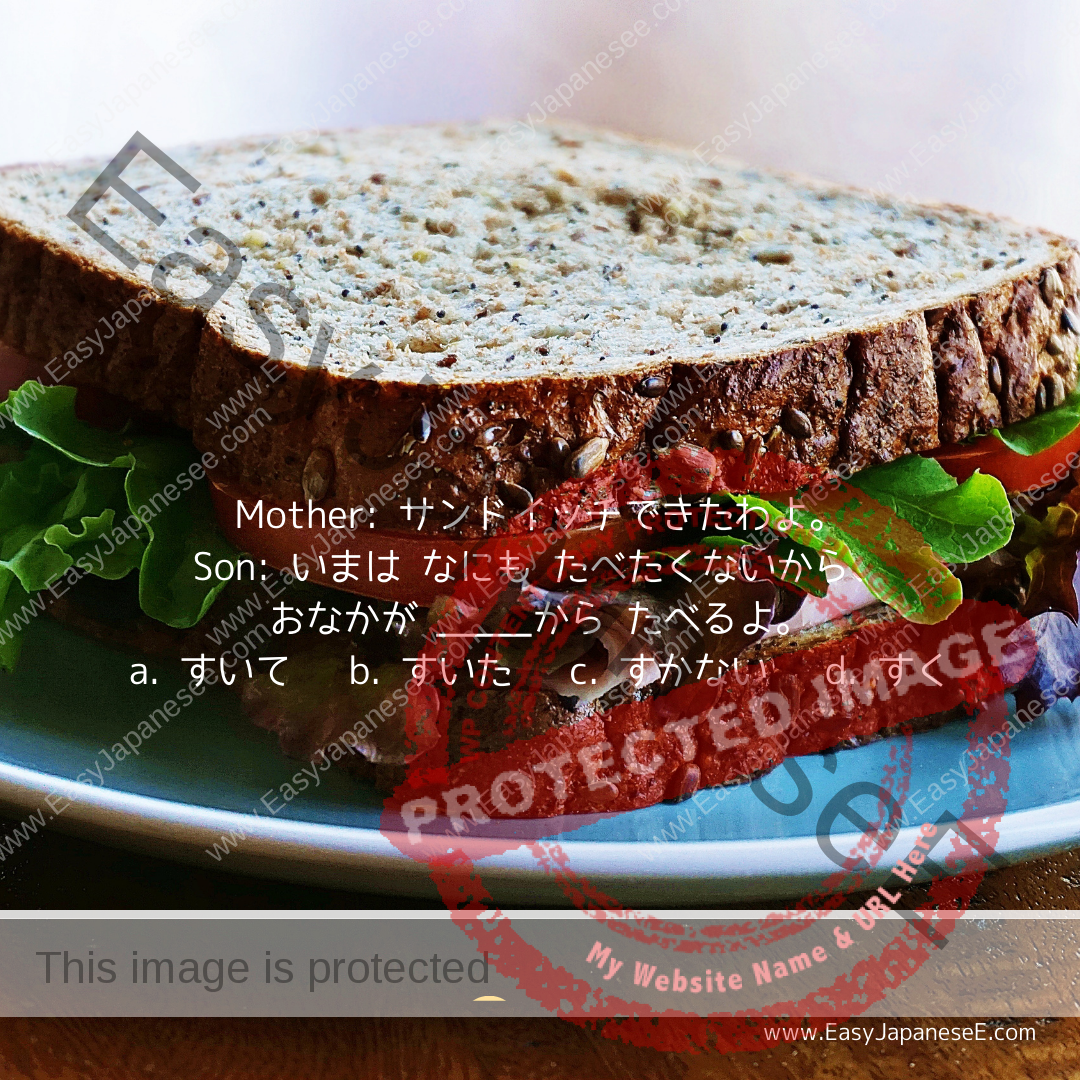
から has many meanings but all beginners need to remember the difference between ~てから and ~たから. Check these example sentences.
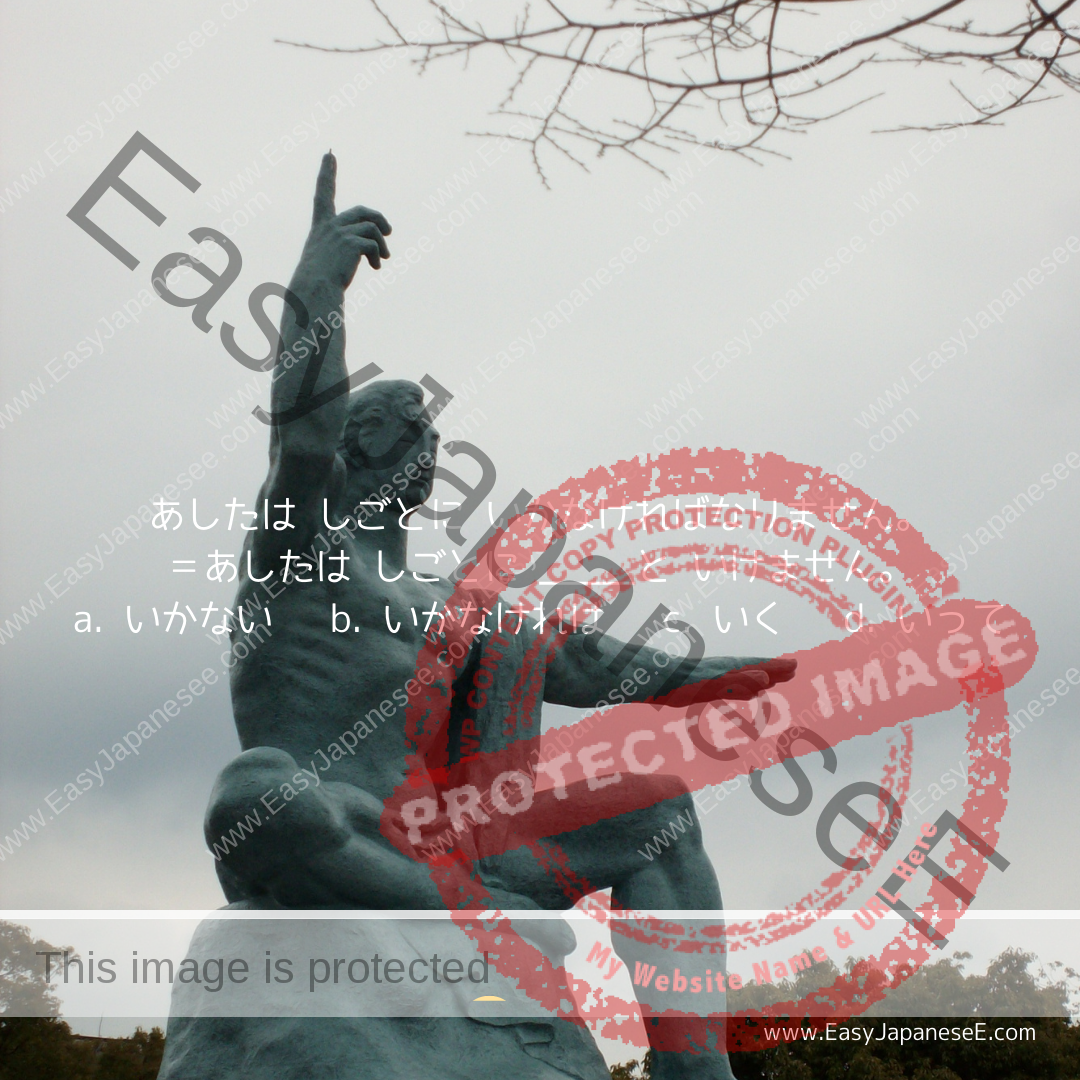
This page explains how to express “obligation”, i.e. “must ~” or “have to ~.” In Japanese it is expressed in double negative.
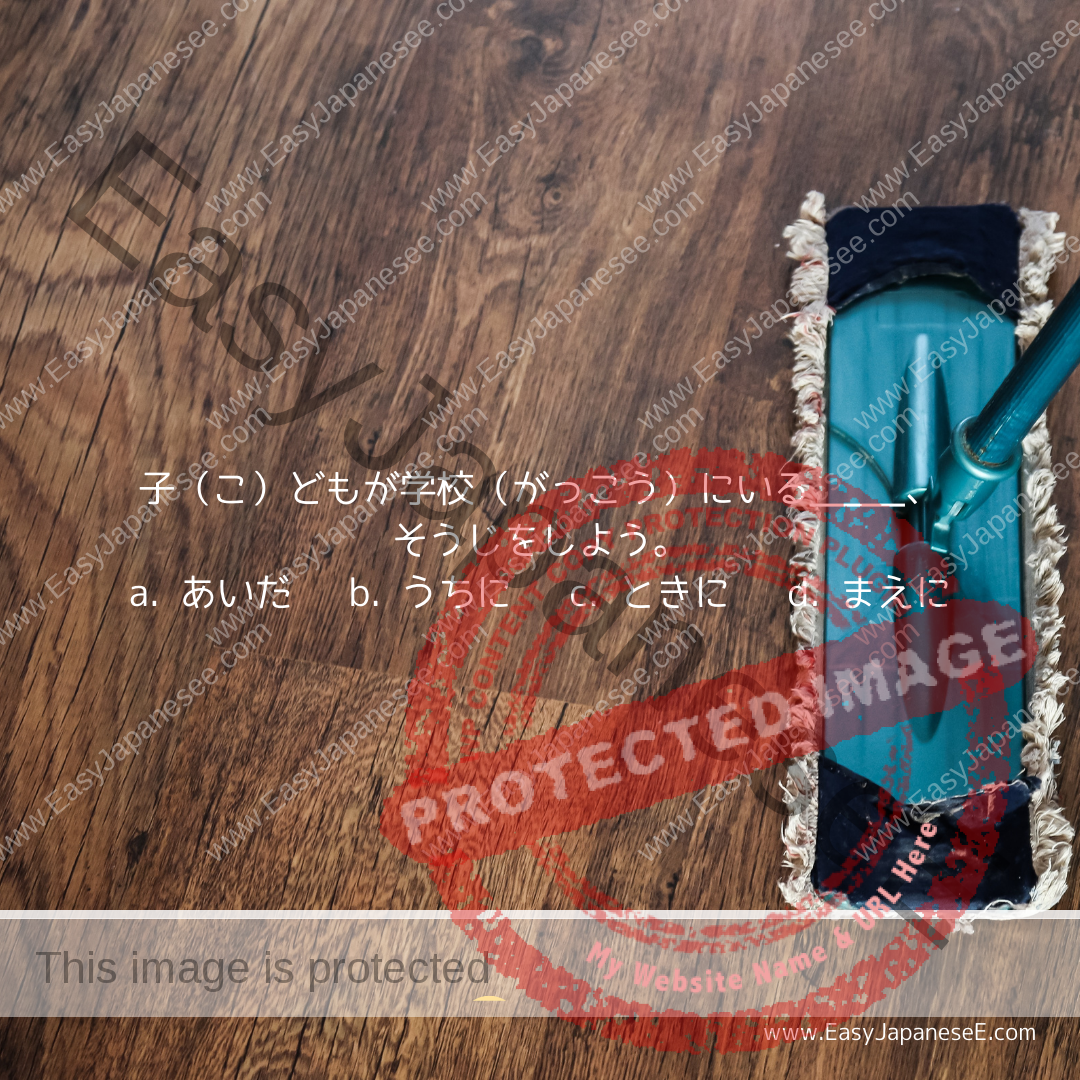
~うちに means “while ~” or “before the state of ~ ends.” It is similar to ~あいだに but ~うちに has a bit more urgent sound. Read examples here.
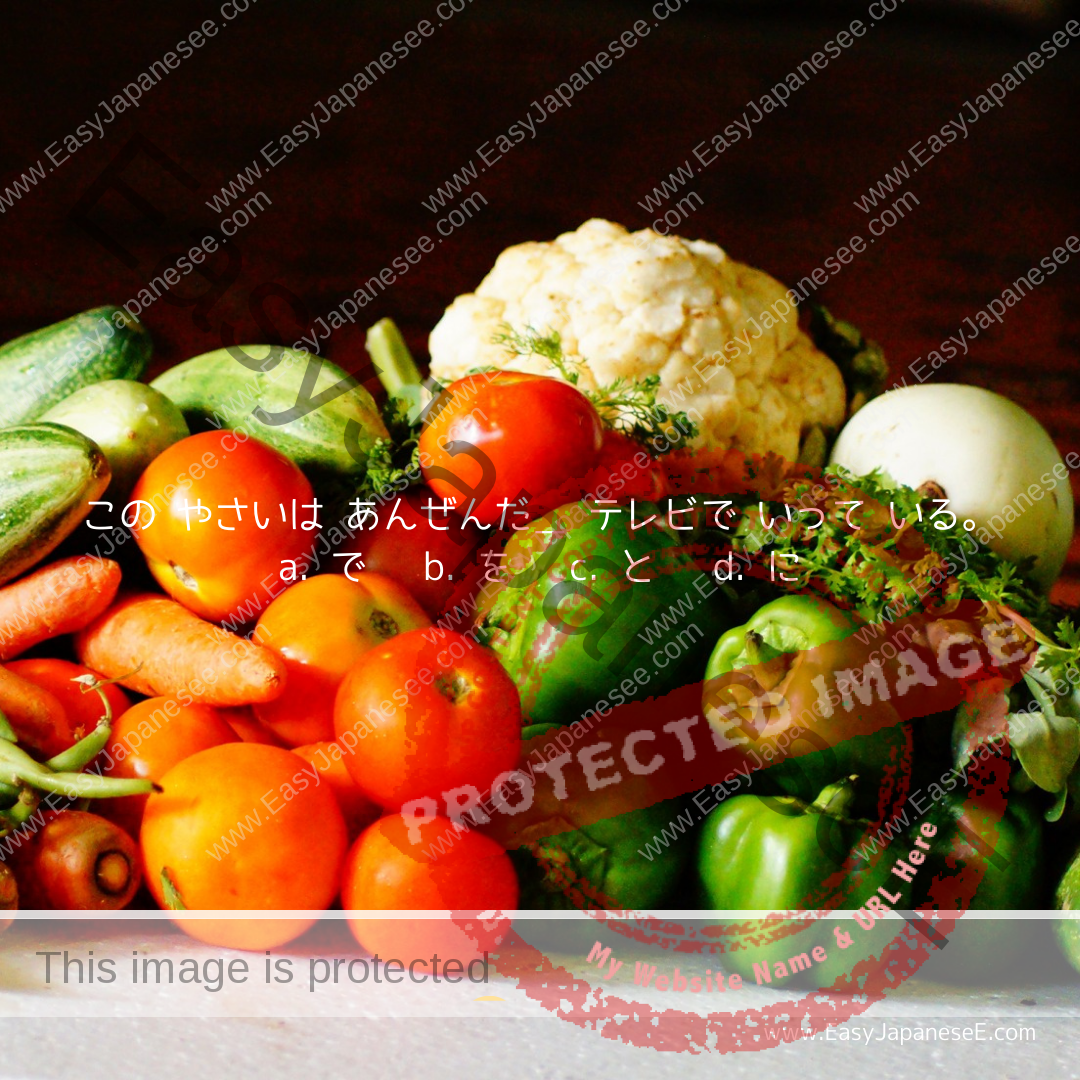
この やさいは あんぜんだ_ テレビで いって いる。a. で b. を c. と d. に The intended meaning is: They are saying…
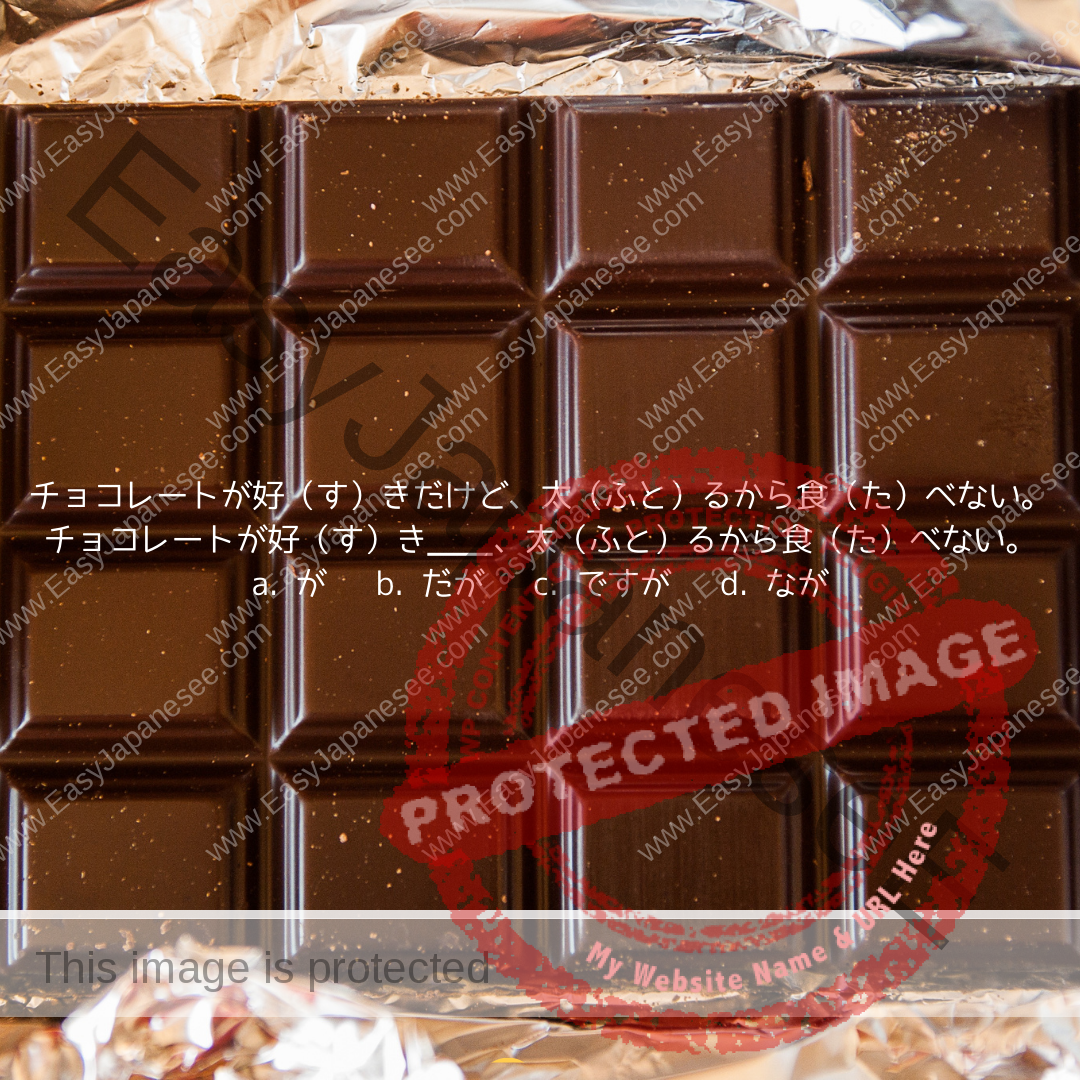
チョコレートが好(す)きだけど、太(ふと)るから食(た)べない。チョコレートが好(す)き__、太(ふと)るから食(た)べない。a. が b. だが c. ですが d. なが The intended meaning is: I like chocolate but as I don’t eat…
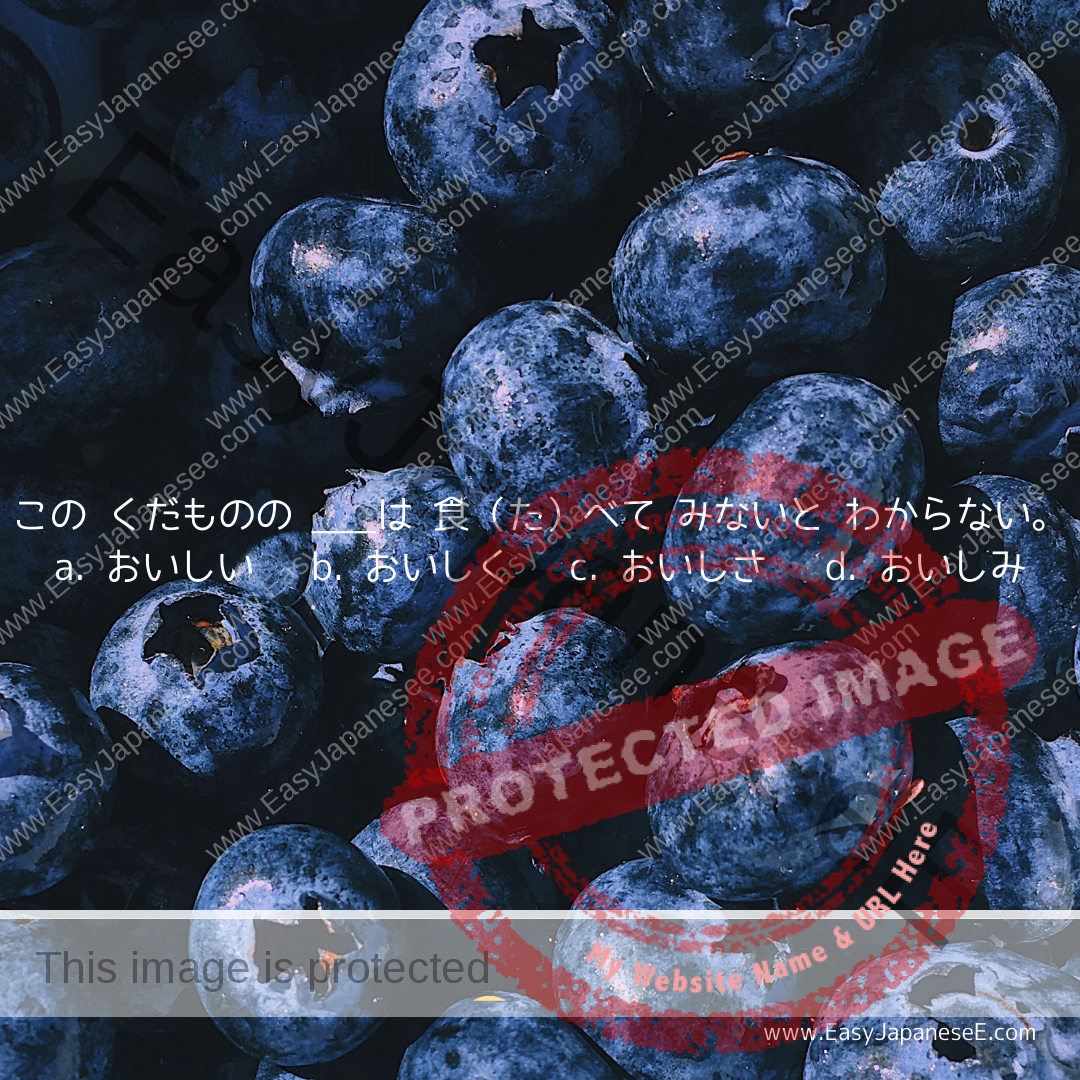
この果物(くだもの)の_は食(た)べてみないとわからない。a. おいしい b. おいしく c. おいしさ d. おいしみ The intended meaning is: People cannot get to know how delicious this…
![[non-past plain verb] + ことになる](https://www.easyjapanesee.com/wp-content/uploads/2020/11/201110-することになる.png)
If my father needs an emergency operation, which is correct? a. 父(ちち)が手術(しゅじゅつ)を受けることにした。b. 父(ちち)が手術(しゅじゅつ)を受けることになった。c. 父(ちち)が手術(しゅじゅつ)を受けるようにした。d. 父(ちち)が手術(しゅじゅつ)を受けるようになった。手術(しゅじゅつ)を受ける = to undergo a surgery…
![[non-past verb] + ことがあります](https://www.easyjapanesee.com/wp-content/uploads/2020/11/201109-することがある.png)
[dictionary form verb] + ことがある/ことがあります literally means “there are occasions when I do ~” or “sometimes ~.” This post also talks about other similar expressions.
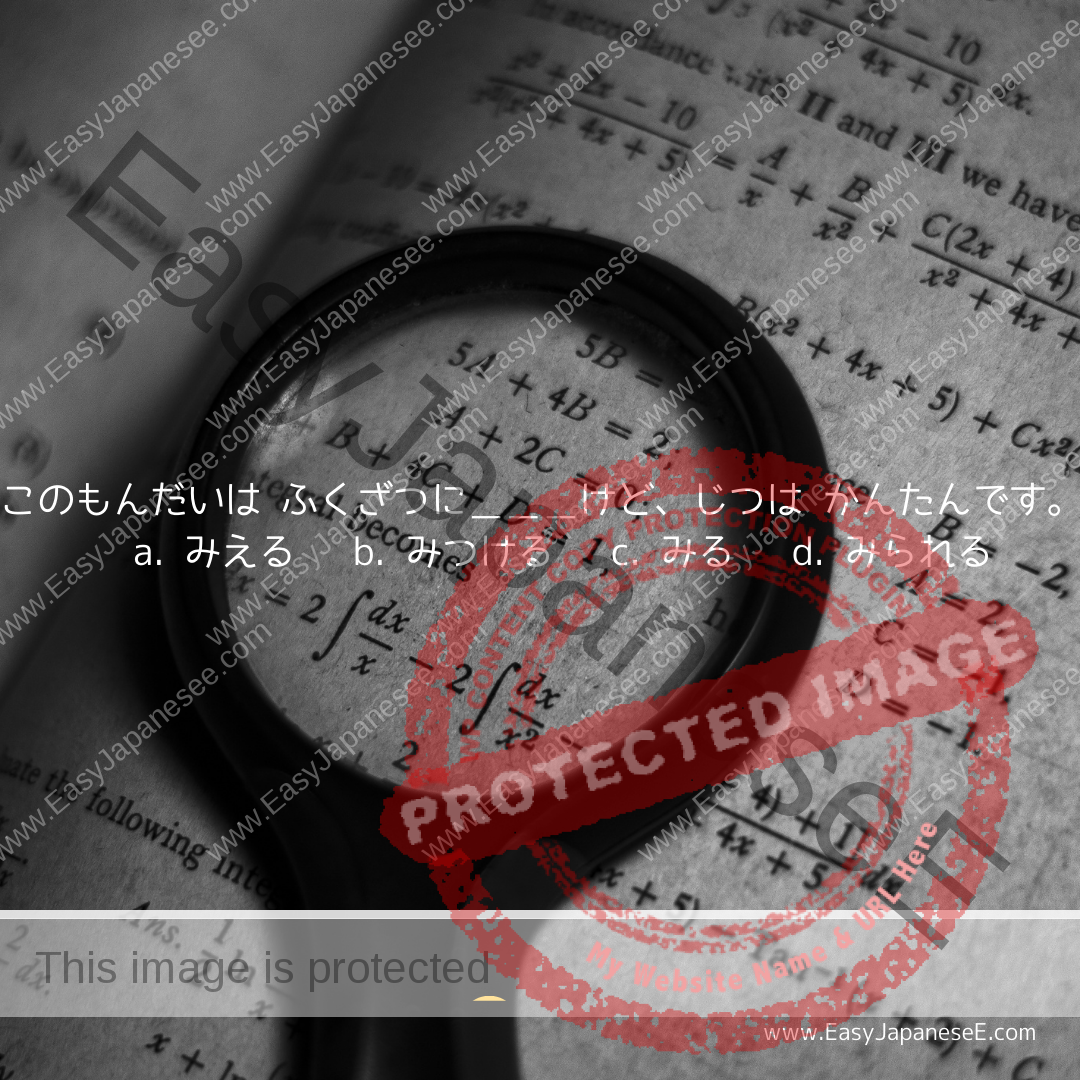
このもんだいは ふくざつに___けど、じつは かんたんです。a. みえる b. みつける c. みる d. みられる The correct answer is a. みえる. 見(み)える has a few…
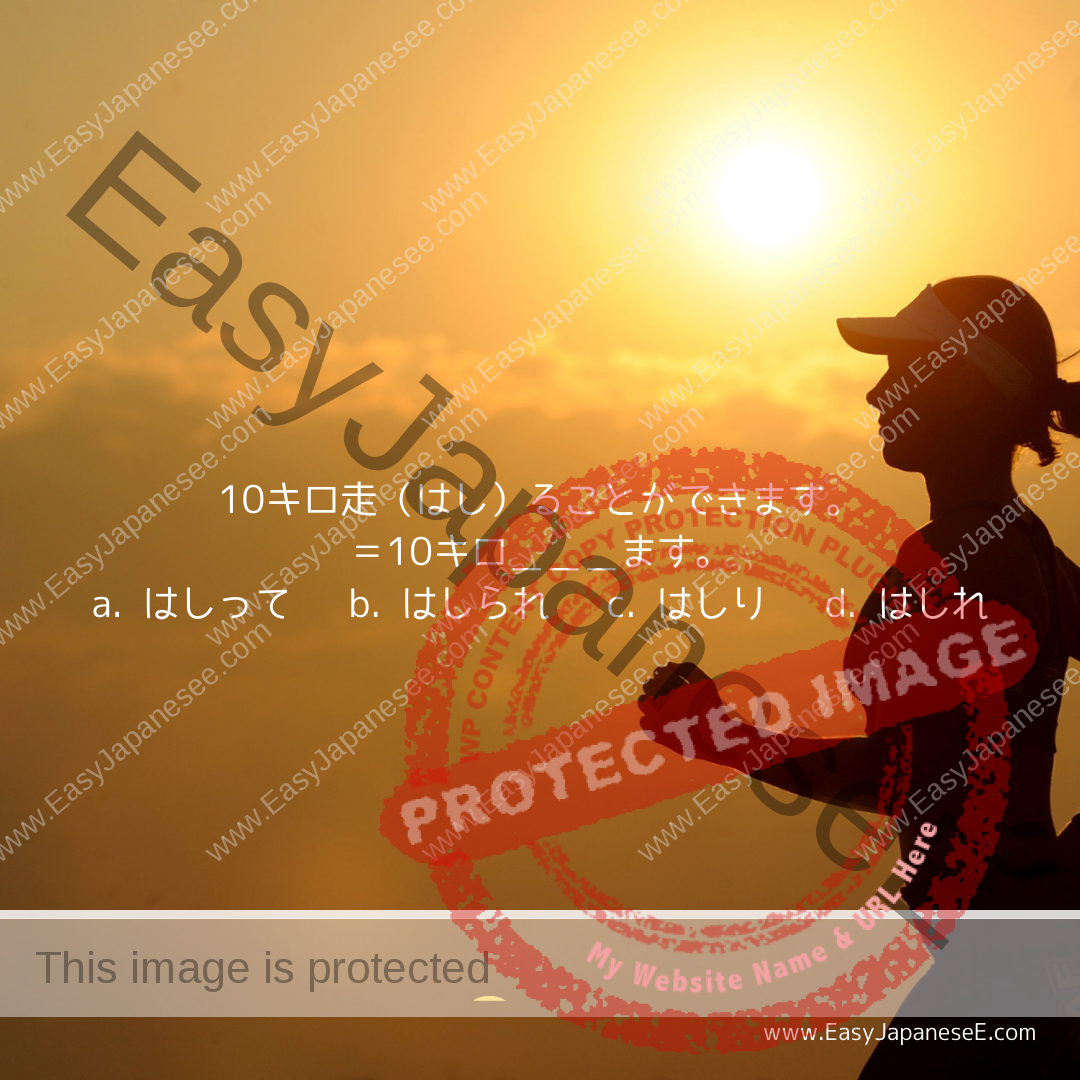
10キロ走(はし)ることができます。=10キロ___ます。a. はしって b. はしられ c. はしり d. はしれ The intended meaning is I can run 10 kilometers, so the answer…
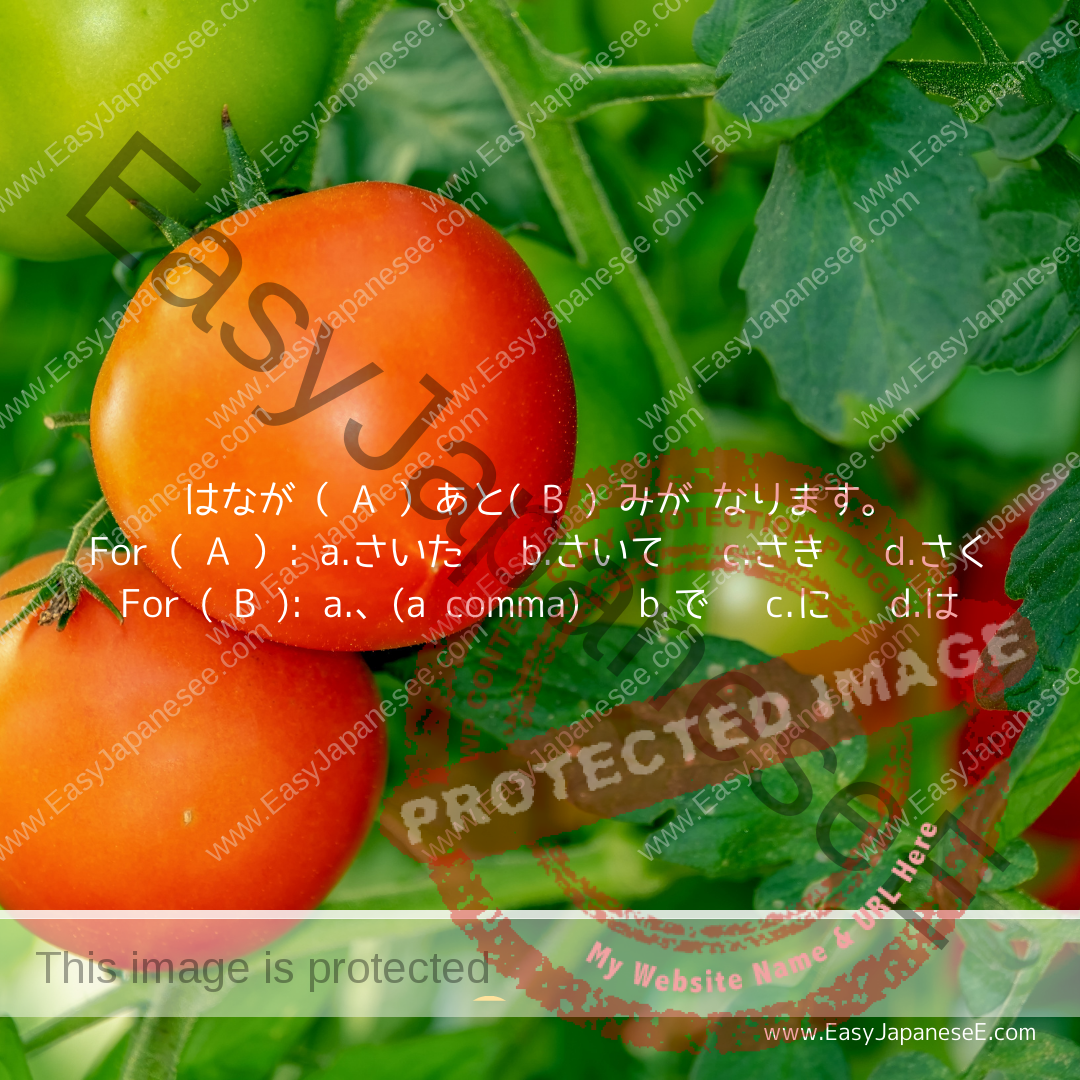
~あと means “after ~” and it is used after a past plain form verb and depending on the particle used after it, the nuance gets slightly altered.
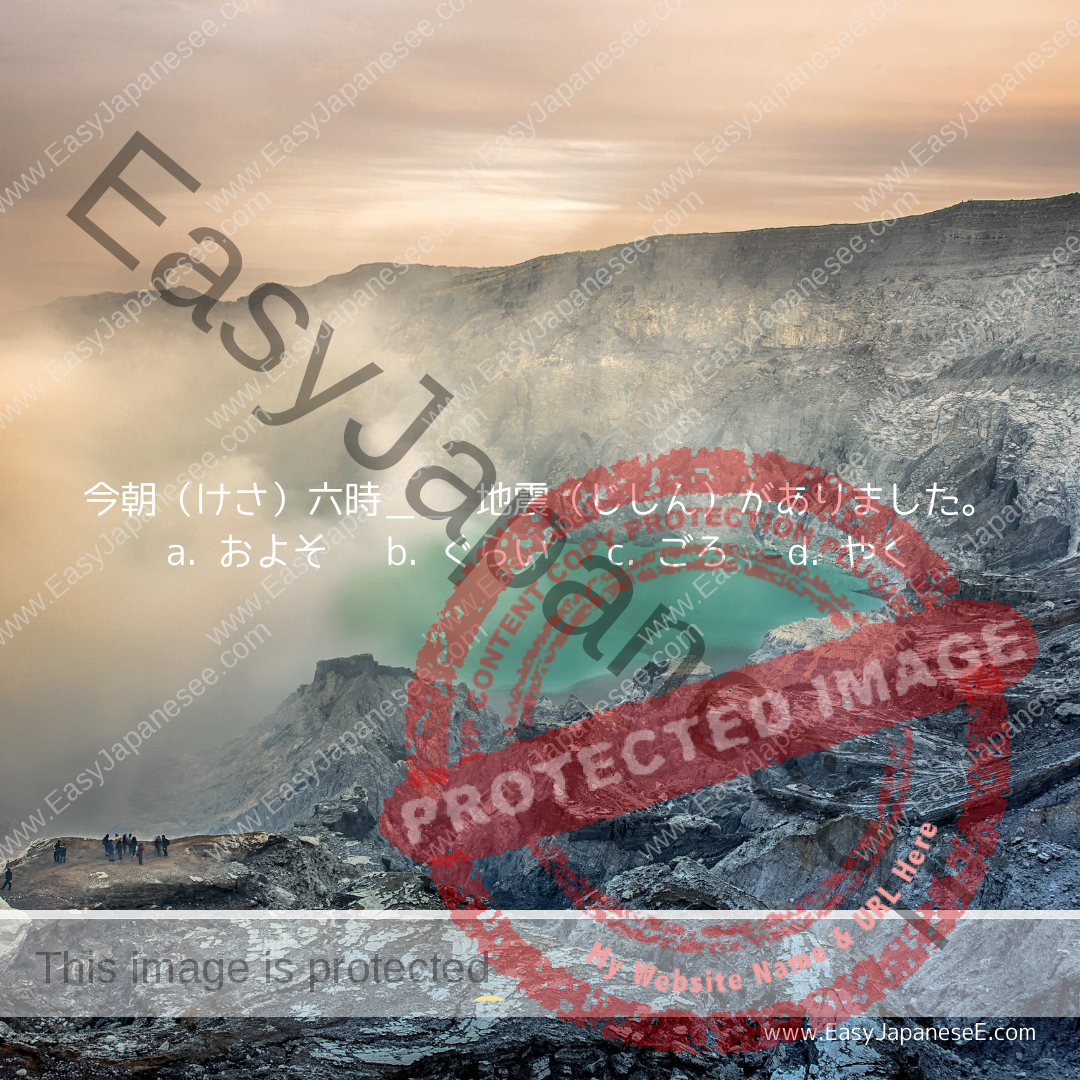
Today’s post is about how to say “approximately” in Japanese. Some are used before a number phrase and others are used after.
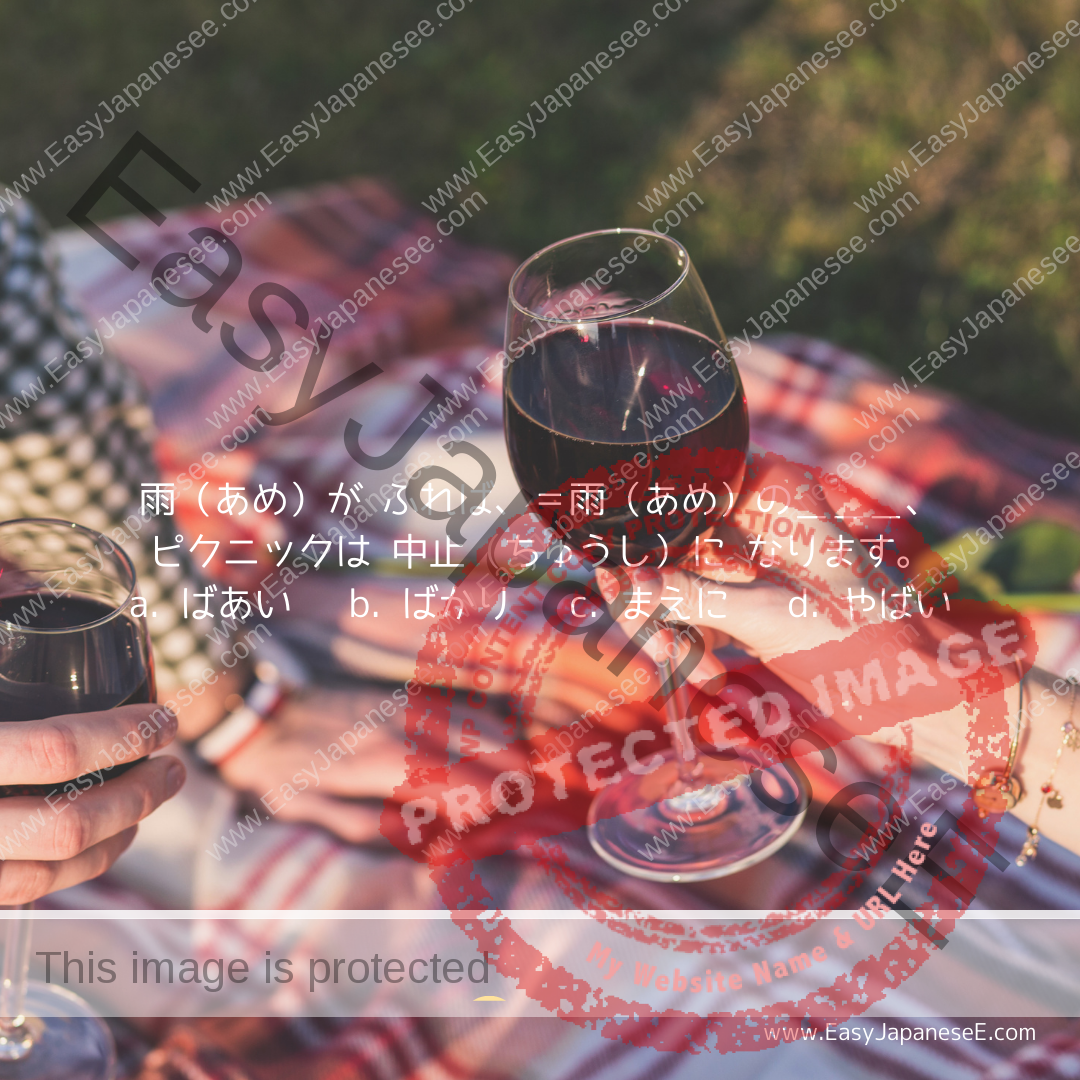
雨(あめ)が ふれば、ピクニックは 中止(ちゅうし)に なります。=雨(あめ)の___、ピクニックは 中止(ちゅうし)に なります。a. ばあい b. ばかり c. まえに d. やばい The intended meaning is: In case of…
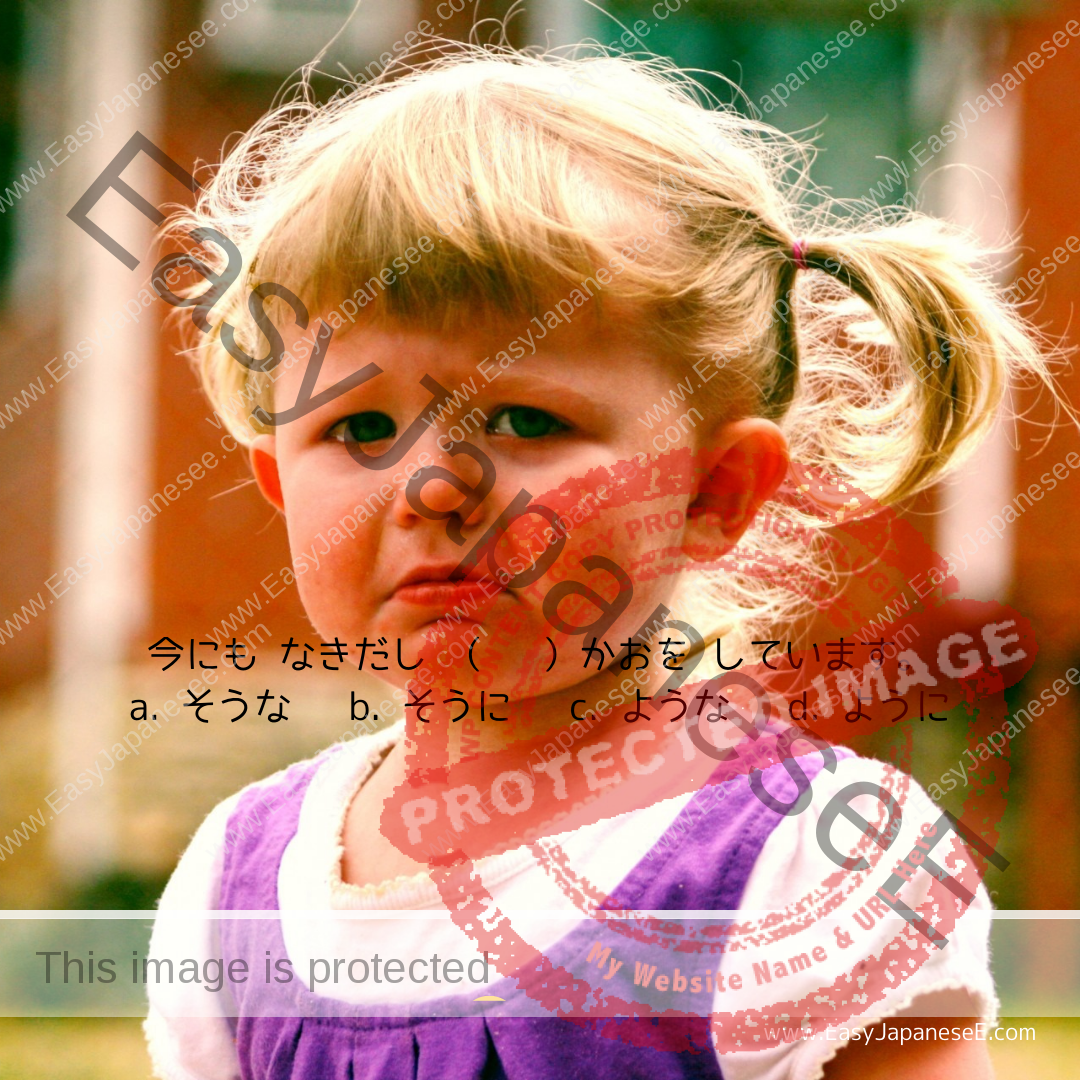
When ~そう is used with the stem of a verb or an adjective, it describes what the speaker thinks will happen or how the situation look to the speaker.
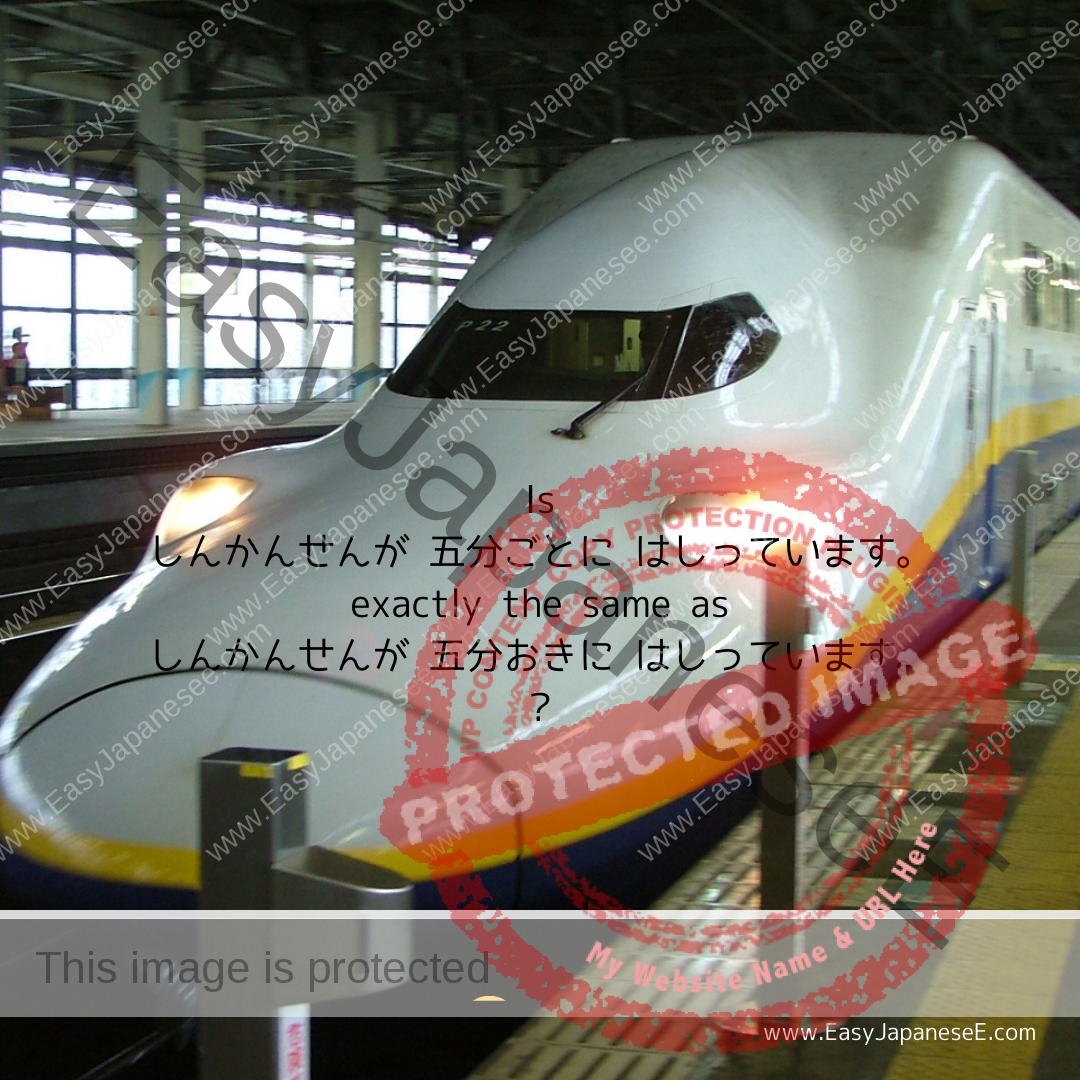
~ごと and ~おき are similar and sometimes they are interchangeable but other times they are not. This post explains the difference and the way to avoid confusion.
![ふだん [ ][ ][ * ][ ]に あります。](https://www.easyjapanesee.com/wp-content/uploads/2020/10/201027-Contact-Clause.png)
Which word fits in the 3rd brackets?ふだん [ ][ ][ * ][ ]に あります。a. あそこ b. おさら c. つかわない d.…
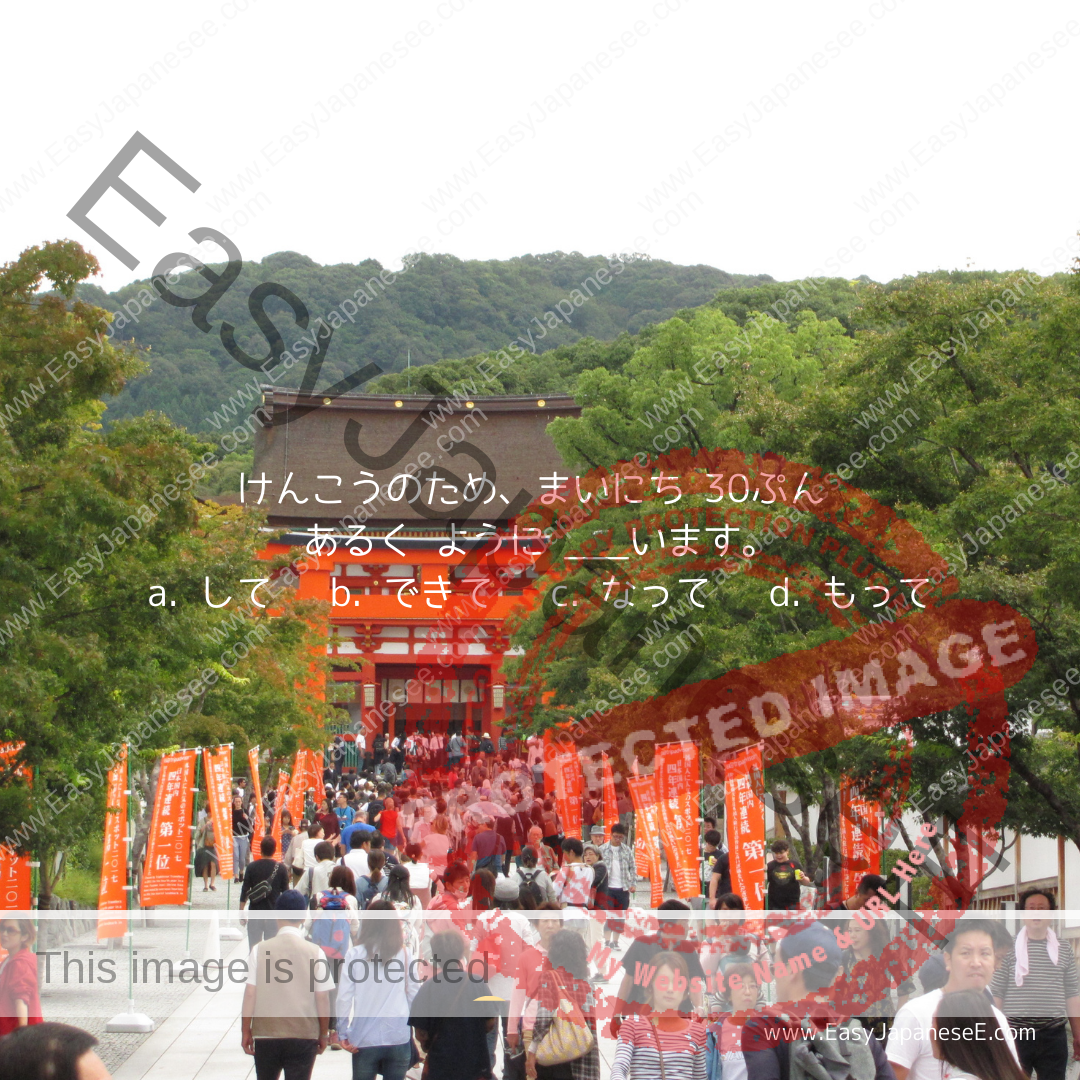
~ようにする is used with a dictionary form verb to describe a conscious effort to do ~. It can be used with a ないform verb to describe a conscious effort NOT to do ~.
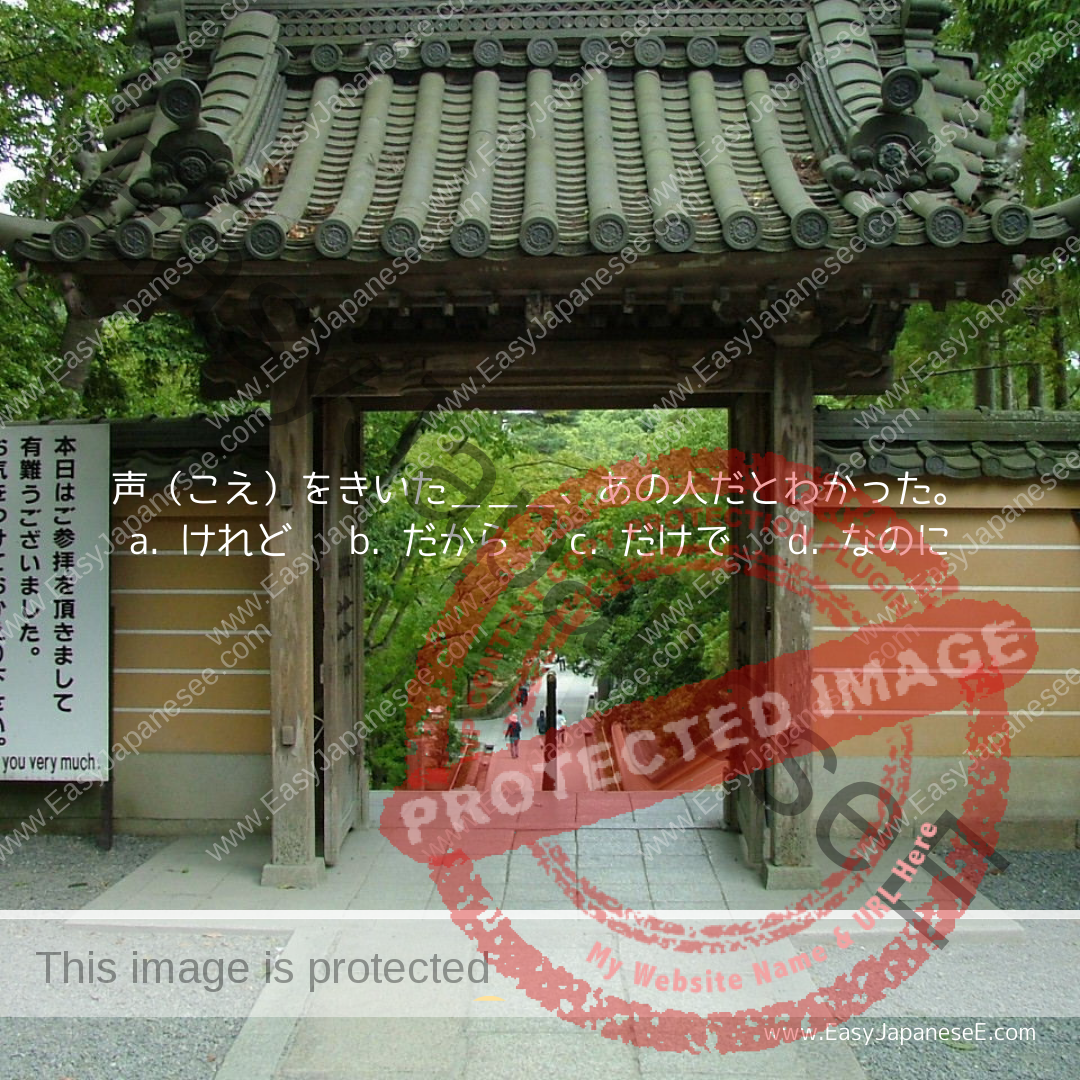
声(こえ)をきいた___、あの人だとわかった。a. けれど b. だから c. だけで d. なのに The intended meaning is: I could tell it was him by just…
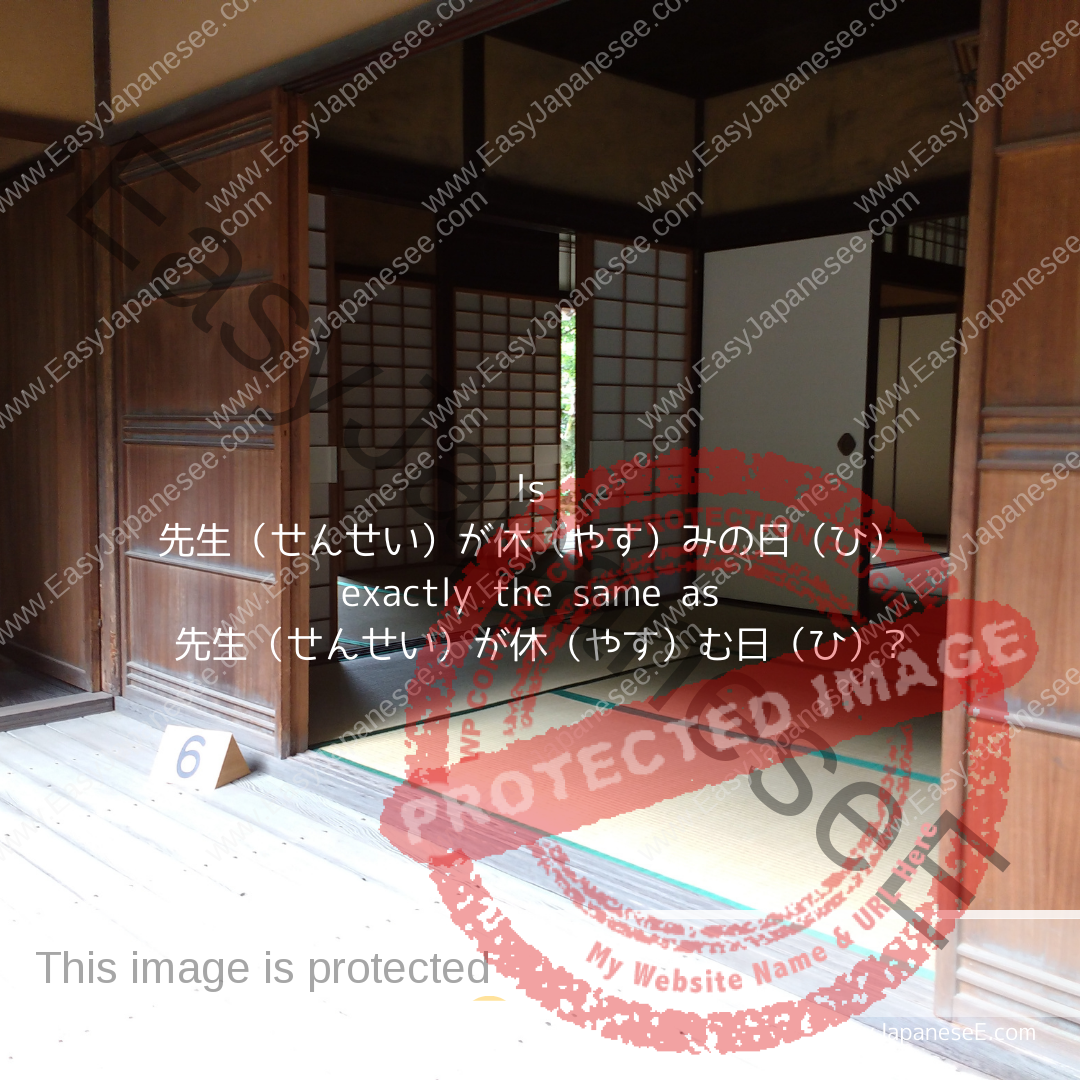
Is 先生(せんせい)が休(やす)みの日(ひ) exactly the same as 先生(せんせい)が休(やす)む日(ひ)? Both of these phrases use a contact clause and from a student’s point…
